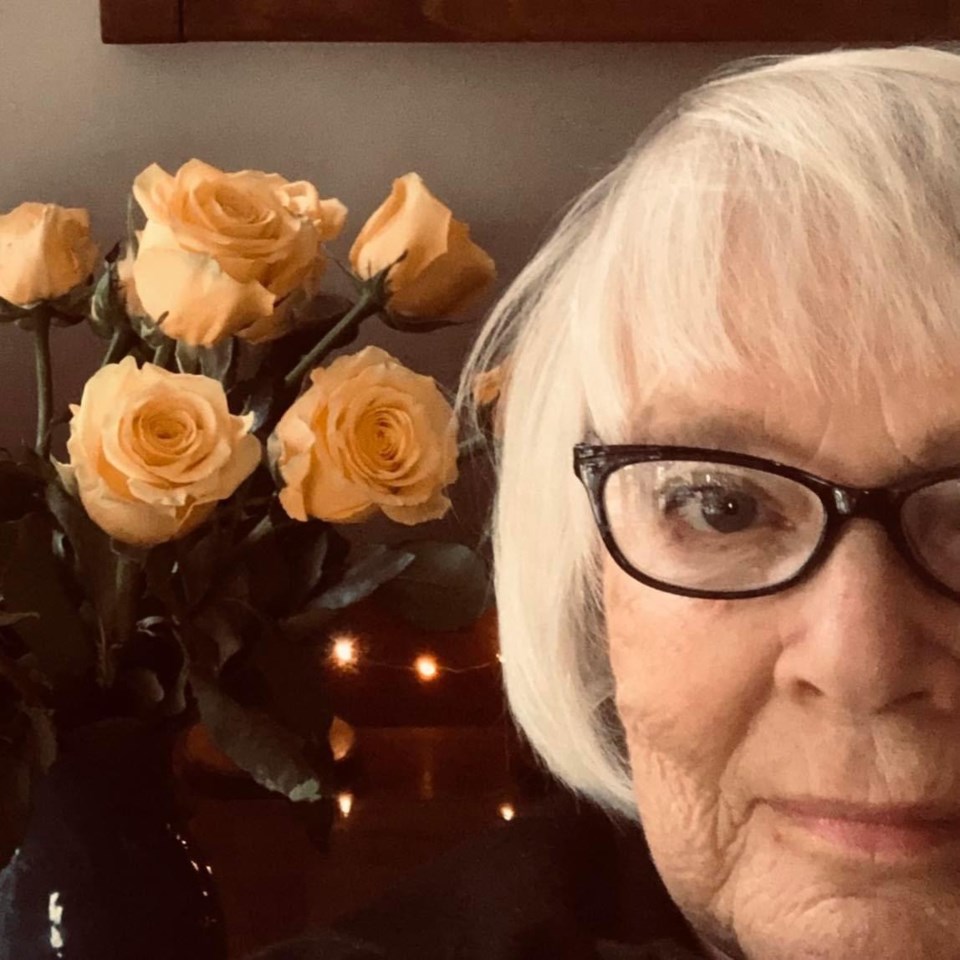Editor's note: The following is a personal account of living with cancer, written by Gail McIlroy of Hawkestone. Click here to read the about the first part of Gail’s journey and here for the second part.
********************
Well, I found this an interesting part of my recovery journey, following chemotherapy and radiation therapy — therapy that ended at the end of April.
I had researched lots, but I hadn’t researched enough because in my case, I didn’t bounce back — and haven’t as yet bounced back — as quickly as I had hoped to. Naive, perhaps. Denial, doubtful.
Each day consists of walking Bentley. (For those who haven’t heard or read about Bentley, he is my rescued golden doodle and, although wonderful, he still has his puppy energy at age four.) Some days we are slow; other days we pick up the pace a bit as per his wishes. The point I am making is walking at any pace is beneficial, as is the fresh air.
I recently had a follow-up imaging appointment. What I found interesting was the pictures showed “grips” had been used. Although I thought I had asked all of the appropriate questions pre-surgery, I quickly learned that I hadn’t.
Surgical grips, for the uneducated or those who haven’t studied medicine, are the surgical devices left inside a person in certain circumstances.
The grips are made of titanium or sometimes steel. They can be seen on a plain film or CT scans.
In the early stage of breast cancer, grips are placed in the surgical bed, one at a time. Grips may allow for decreased surgical time. Surgeons rely on percutaneous-placed clips to target a non-palpable lesion for wire localization.
Radiation oncologists rely on grips in the tumour bed to accurately locate the surgical cavity.
Grips accurately mark the area for boost radiation therapy. Boost radiation therapy is used to target a small section of where the surgery was targeted. All of this I had, but was totally oblivious about the grips, so for this reason decided to share with you. Grips are often used for brain surgery, I’ve learned.
It’s also important to mention how amazing the staff (at all levels at Orillia Soldiers’ Memorial Hospital) are despite being short-staffed like so many across the province.
The wonderful technician I worked with the morning of my appointment (8:30 a.m.) had also worked until midnight the previous night.
Yes, she was exhausted and quickly shared that the few of them who agree to take on the extra hours are not paid overtime. It’s extremely difficult on the staff who agree to work the extra hours when there are also team members who don’t agree to work overtime.
My concern, like so many of us, is not knowing what the immediate solution is. As citizens, we can write our MPP’s office but, in reality, how quickly would or could anything get passed?
Officials from the provincial government need to spend a day or two to run beside these dedicated hospital workers. They are literally running — not walking, but running — and doing all sorts of work: cleaning, running laundry carts, and sharing information with other team members when necessary and where they are qualified.
For me, recovery has been slower than I imagined it to be. My legs are problematic no matter how hard I push them.
Next week, following blood work, an IV drug called Zometa will probably be started. The best advice I can share with you is to be patient with yourself.
Should you have concerns, reach out to your oncology team. Don’t let your worries or lack of energy get ahead of you.
We are all different and we all heal differently and at a different pace. It’s funny when you think of recovery; the best scenario is to look back to where you were a year ago, all of what you have progressed through: surgery, pain imaging, chemotherapy treatments, more imaging, radiation treatments.
The oncologist determines the kind of treatment and in what order you will receive it. In the case of chemo treatments, each recipe for each patient is different and each patient will respond to treatment differently.
Living in Canada is a privilege. Yes, our medical care is in trouble at the moment. However, priority situations do receive the necessary care.
Hang in there. It will be what it will be, so you might just as well accept whatever has been dealt to you.
I do believe, for whatever it’s worth, that music is necessary in healing, as well as getting fresh air, and family and friends to laugh with. Even if virtually, it beats not connecting, doesn’t it?



